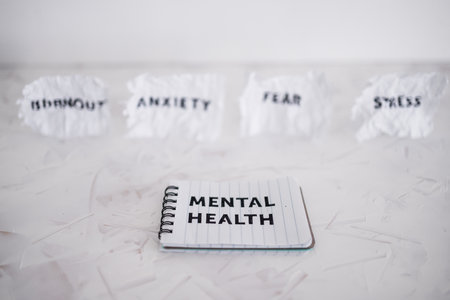Introduction: Redefining Skincare and Mental Wellbeing for British Men
Once quietly tucked away behind closed doors or shrugged off with a stiff upper lip, the conversation about mental health and skincare for men in the UK is finally stepping into the light. Today, British men are beginning to challenge old taboos, moving beyond the notion that self-care is somehow unmanly or unnecessary. There’s a palpable shift in the air—a willingness to acknowledge that looking after your skin and mind isn’t just a women’s domain, but a vital part of modern masculinity. From the streets of London to the hills of the Lake District, men are starting to embrace rituals that nourish both their outer appearance and inner wellbeing. This intersection of mental health and skincare is more than a passing trend; it’s a holistic movement that encourages men to redefine what strength, vulnerability, and self-respect truly mean in the 21st century UK.
2. The British Context: Traditional Attitudes and Emerging Change
When we consider the intersection of mental health and skincare for UK men, it’s impossible to ignore the weight of tradition that has long shaped British masculinity. Historically, “stiff upper lip” culture encouraged men to remain stoic and reserved, especially when it came to personal struggles or self-care routines. Talking openly about emotions was often viewed as a sign of weakness, and grooming beyond basic hygiene was typically associated with vanity—a trait discouraged in traditional British society.
The Legacy of Masculinity in the UK
This reluctance stems from deep-rooted societal norms, where strength and resilience were prized above vulnerability. For many generations, British men were expected to prioritise duty and endurance over personal wellbeing, both mentally and physically. As a result, conversations around mental health rarely took place, and skincare was largely dismissed as unnecessary or even unmanly.
Traditional vs. Modern Perspectives
| Aspect | Traditional Attitude | Emerging Change |
|---|---|---|
| Mental Health | Taboo subject; emotional restraint valued | Open dialogue encouraged; seeking help normalised |
| Skincare | Minimalist; considered feminine or superficial | Accepted part of self-care; products marketed for men |
Cultural Shifts in Recent Years
Thankfully, these views are evolving. With growing awareness around mental health and wellness—fuelled by campaigns from organisations like Mind and CALM—British men are increasingly encouraged to share their experiences and seek support. The skincare industry has also adapted, with brands launching ranges specifically designed for men and promoting the idea that looking after your skin is an act of self-respect rather than vanity.
This cultural shift is significant, marking a departure from old stereotypes towards a more holistic understanding of what it means to be healthy and confident as a man in the UK today. By embracing both mental health practices and skincare routines, British men are not only challenging outdated norms but also discovering new pathways to wellbeing that honour both mind and body.

3. The Mind-Skin Connection: Science and Experience
When it comes to understanding the intersection of mental health and skincare for UK men, one cannot overlook the profound connection between our minds and our skin. Scientific research increasingly supports what many of us have suspected from our own experiences: stress, anxiety, and low mood often show up on our skin before we even realise it ourselves. Dermatologists across the UK have noted that conditions such as eczema, psoriasis, and adult acne can flare up during stressful periods. The British Association of Dermatologists highlights that up to 30% of dermatology patients also experience psychological distress related to their skin concerns.
But beyond the clinical studies, there are countless stories from everyday British blokes whose skin mirrors their mental wellbeing. Take, for example, a mate from Manchester who noticed persistent breakouts during a tough patch at work, or a Londoner who found that mindfulness practices helped not only his anxiety but also his rosacea. These lived experiences reflect a wider truth: our emotions and stress levels often have a tangible impact on our complexion.
Experts suggest that stress releases hormones like cortisol which can disrupt the skin’s natural barrier, leading to irritation, dryness, or increased oiliness. It’s a cycle many UK men will recognise—worrying about appearance causes stress, which then makes skin issues worse, creating a feedback loop that’s difficult to escape. The good news is, understanding this connection empowers us to approach skincare with greater compassion and awareness. By acknowledging how our minds and skin communicate, we can tailor routines that address both, making self-care not just about products but also about nurturing our mental health.
4. Skincare as Self-Care: Rituals, Routines, and Resilience
For many British men, the concept of self-care might once have felt indulgent or even unnecessary—a quiet cup of builder’s tea or a weekend walk along the rugged Cornish coast often seemed more familiar than lotions or serums. But in my own journey, I’ve discovered that integrating skincare into daily life is less about vanity and more about carving out a mindful moment just for myself. It’s become a grounding ritual, not unlike brewing that perfect cuppa or bracing myself against a chilly sea breeze. These simple acts offer both comfort and resilience.
Embracing a skincare routine doesn’t need to be elaborate or intimidating. In fact, it can be as straightforward as the classic British approach to daily rituals—efficient, practical, yet deeply satisfying. Here’s how I’ve woven skincare into my own routine, alongside some distinctly UK-inspired self-care touches:
| Time of Day | Skincare Step | UK-Inspired Mindful Moment |
|---|---|---|
| Morning | Cleansing with cool water and a gentle face wash | Savouring the aroma of freshly brewed builder’s tea |
| Midday | Reapplying moisturiser (especially after being outdoors) | A quick stroll through a local park or green space |
| Evening | Applying nourishing night cream or facial oil | A calming read by the window during rain showers |
I’ve found that these small rituals are quietly powerful. There’s something uniquely grounding about washing your face after a long commute on the Tube or massaging in moisturiser while reflecting on the day’s ups and downs. It becomes an act of kindness towards oneself—acknowledging that you deserve this moment of care, just as much as anyone else.
The Power of Consistency: Building Resilience Through Routine
The real magic happens not in the products themselves but in the commitment to showing up for yourself every day. Just as we Brits find resilience in weathering grey skies or cheering on our teams come rain or shine, so too can we build emotional strength through consistent routines. The predictability of these small acts provides stability, especially when life feels overwhelming.
Practical Tips for Men Starting Out
- Start simple: Cleanser and moisturiser are enough to begin with—think of it as your skincare ‘tea and toast’.
- Tie skincare to existing routines: Apply products right after brushing your teeth or before making your morning tea.
- Add mindful moments: Use this time to check in with yourself—notice how your skin feels, breathe deeply, and set an intention for the day ahead.
The Takeaway
Building a skincare routine isn’t about chasing perfection—it’s about honouring yourself with a few minutes of presence each day. Whether it’s paired with the quiet comfort of your favourite mug or accompanied by the sound of seagulls from an open window, these rituals can help foster both healthier skin and greater peace of mind.
5. Navigating Products and Spaces: UK-Focused Advice
When it comes to intertwining mental health and skincare, the British landscape offers a wealth of accessible options that cater specifically to men’s wellbeing. For those just starting out, high-street favourites such as Bulldog Skincare for Men and L’Oréal Men Expert provide affordable, no-nonsense products made with natural ingredients—perfect for simplifying your routine without sacrificing quality. If you’re seeking something more local or sustainable, brands like Heath London and ManCave are gaining traction for their focus on cruelty-free formulas and minimalist design, echoing a modern British sensibility.
Barbershops as Wellbeing Hubs
The humble barbershop has evolved beyond a place for a quick trim. Across the UK, spaces such as The Lions Barber Collective champion both mental health conversations and grooming expertise. Many independent barbershops now offer not only tailored skincare advice but also a supportive environment where men can open up about stress or anxiety in an unpressured setting. The simple act of booking a hot towel shave or facial can become an act of self-care, reinforcing the connection between looking good and feeling good.
Tapping into Online Communities
For those who prefer digital spaces or live outside major cities, online communities have blossomed—think of groups like Men’s Health Forum UK, Reddit’s r/SkincareAddictionUK, or even Instagram collectives led by male influencers sharing honest reviews and routines tailored to British weather and lifestyles. These platforms encourage camaraderie, dismantle outdated stigmas, and offer peer support—whether you’re navigating eczema flare-ups from the damp climate or managing the emotional toll of breakouts.
Your Next Step: Make It Local, Make It Yours
No matter your starting point, integrating these UK-specific resources can make your skincare journey less daunting and more rewarding. Explore your local chemist for home-grown brands, strike up a chat at your neighbourhood barber, or join an online forum to swap tips with others facing similar challenges. Each small step is not just about improving your skin—it’s about nurturing your overall sense of wellbeing in a way that feels authentically British and authentically you.
6. Breaking the Stigma: Opening Up and Moving Forward
For many UK men, the journey towards holistic wellbeing often begins with a single conversation. Whether its sharing a pint at the local pub, chatting over coffee in the workplace breakroom, or opening up at home, these honest dialogues can be transformative. The British culture, with its famous “stiff upper lip,” has long encouraged stoicism—but times are changing. By initiating open conversations about mental health and skincare, we collectively chip away at the stigma that keeps many men from seeking support.
Imagine talking with your mates after a five-a-side football match and mentioning how you’ve started a skincare routine to help manage stress-related breakouts. Or perhaps you’re confiding in a colleague about feeling overwhelmed and asking for tips on balancing work pressures with self-care. These moments, however small, create ripples of change—normalising vulnerability and self-compassion among men across the UK.
The Power of Everyday Conversations
It’s not about grand gestures; it’s about making mental health and skincare part of everyday life. At home, simply checking in on a friend or family member with genuine interest can make all the difference. In the workplace, encouraging open discussions through initiatives like Mental Health First Aid training or lunchtime wellbeing talks helps foster an environment where everyone feels seen and supported.
Leading by Example
When one man speaks honestly about his struggles—be it anxiety, low mood, or issues with skin confidence—it gives others permission to do the same. This peer-to-peer encouragement is vital for dismantling stereotypes around masculinity and self-care. Over time, these conversations become less taboo and more routine, nurturing a culture where asking for help isn’t seen as weakness but as strength.
A Holistic Way Forward
By blending mental health awareness with skincare habits, UK men can embrace a truly holistic approach to their wellbeing. Let’s champion open conversations in our communities, workplaces, and homes—because together, we can build a future where looking after both mind and skin is simply part of being well.


